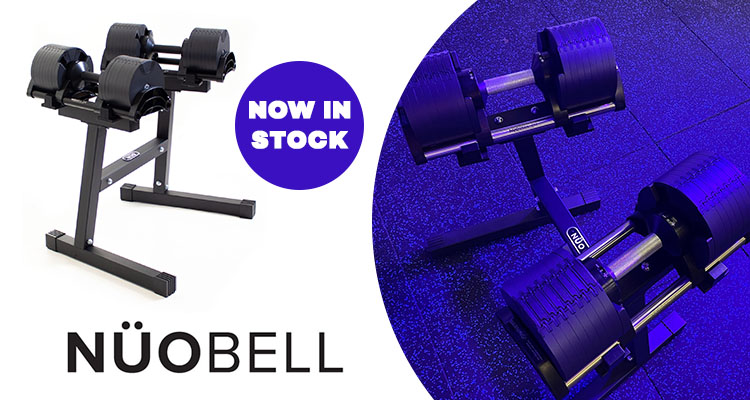 We might all think we’re heart-healthy, but are you really sure? Follow our 6 rules to get you on the way to a healthier heart and a better you…
#1. Exercise with a heart rate monitor
We might all think we’re heart-healthy, but are you really sure? Follow our 6 rules to get you on the way to a healthier heart and a better you…
#1. Exercise with a heart rate monitor
We all know that exercise is one sure fire way to ensure a healthier heart. We should all be aiming to exercise at least 3 times a week and should ideally try to get 30 minutes’ exercise each day. A great companion for your fitness regime is a
heart rate monitor. To get the most out of your exercise, you want to get your heart to 75% of its maximum. A heart rate monitor is a great way to push you on (and cheaper than hiring a long-term personal trainer!) As you get fitter, it will be harder to reach your maximum heart rate, and the monitor will show you exactly where you are. It’s a fantastic way to help you get fitter.
Heart rate monitors are great for all sorts of training and sports and can be used indoors on cardio machines such as
treadmills and
cross trainers, or use them for cycling or running outdoors. Many, such as
Polar heart rate monitors are super intuitive with GPS.
#2. Get your 5 a day
We all know that gorging on chocolate and Big Macs is not the healthy way to go. But when these foods taste so good, they can certainly be tough to resist. But what’s important to know is that eating a healthy, balanced diet is the key to feeling your best.
Eating plenty of fruit and vegetables – at least 5 servings a day – is key. And it doesn’t have to be difficult to fit them in. You could add a potassium-rich banana chopped up over your morning muesli, swap a can of coke for a glass of fresh orange juice (unsweetened!) and replace a portion of chips at dinner with a sweet potato, rich in vitamins and iron.
#3. Cut down on saturated fats and sugar
Cutting down on saturated fats is a great way to ensure a healthier heart as it will reduce cholesterol build up in your blood. Avoid foods like butter, sausages, biscuits and cakes and opt for oily fish, lean meats and vegetable oils. To cut down on sugar intake, make sure you check labels on foods. More than 22.5g of sugar per 100g means that the food is high in sugar.
#4. Ditch the salt
Loads of foods we eat already contain salt. So even if you don’t physically add extra salt to your food, this doesn’t automatically mean you’re not consuming too much of the stuff. Make sure you check those labels on foods you buy, ensuring they’re no higher than 1.5g of salt per 100g. Making sure you eat no more than 6g of salt a day will help keep your heart happy
#5. Break away from the booze
Although some research suggests that moderate drinking can be good for the heart, there is no doubt that regular and/or excessive boozing can lead to heart disease and other serious illnesses. The good news is that you don’t have to cut out alcohol completely, but the benefits of cutting down are huge. It can help you sleep better, meaning you feel more alert and generally fresh in the mornings and it can help you feel far more energised. The great thing there is that you will have more energy for training and therefore a better chance of reaching your fitness goals sooner.
And let’s not forget – alcohol inevitably provides you with unwelcome calories. 5 pints a week = up to 60,000 extra calories a year!! To cut back, limit how much alcohol is in the house (out of sight, out of mind as they say) and try to distract yourself from routine drinking by doing something else. Best idea? Work out instead! Whether you want to lift weights or jump on the treadmill, distract yourself. Set yourself some new fitness goals and use the time – and increased energy - to reach them.
#6. Make breakfast a priority
That’s right, eating breakfast is as important as they say. You might think that cutting brekkie will help you lose weight perhaps, but that’s simply not the case. Research continues to prove that people who eat breakfast are more likely to control their weight. This is because it kick starts your metabolism, allowing you to burn more calories during the day. Fasting slows your metabolic rate, meaning the body holds on to any fats it takes in, which doesn’t help your heart. Check out our
healthy breakfast swaps for ideas.
Have you got some useful tips to share on getting fit and healthy? Let us know in the comments or Tweet us.

 We might all think we’re heart-healthy, but are you really sure? Follow our 6 rules to get you on the way to a healthier heart and a better you…
#1. Exercise with a heart rate monitor
We all know that exercise is one sure fire way to ensure a healthier heart. We should all be aiming to exercise at least 3 times a week and should ideally try to get 30 minutes’ exercise each day. A great companion for your fitness regime is a heart rate monitor. To get the most out of your exercise, you want to get your heart to 75% of its maximum. A heart rate monitor is a great way to push you on (and cheaper than hiring a long-term personal trainer!) As you get fitter, it will be harder to reach your maximum heart rate, and the monitor will show you exactly where you are. It’s a fantastic way to help you get fitter.
Heart rate monitors are great for all sorts of training and sports and can be used indoors on cardio machines such as treadmills and cross trainers, or use them for cycling or running outdoors. Many, such as Polar heart rate monitors are super intuitive with GPS.
#2. Get your 5 a day
We all know that gorging on chocolate and Big Macs is not the healthy way to go. But when these foods taste so good, they can certainly be tough to resist. But what’s important to know is that eating a healthy, balanced diet is the key to feeling your best.
Eating plenty of fruit and vegetables – at least 5 servings a day – is key. And it doesn’t have to be difficult to fit them in. You could add a potassium-rich banana chopped up over your morning muesli, swap a can of coke for a glass of fresh orange juice (unsweetened!) and replace a portion of chips at dinner with a sweet potato, rich in vitamins and iron.
#3. Cut down on saturated fats and sugar
Cutting down on saturated fats is a great way to ensure a healthier heart as it will reduce cholesterol build up in your blood. Avoid foods like butter, sausages, biscuits and cakes and opt for oily fish, lean meats and vegetable oils. To cut down on sugar intake, make sure you check labels on foods. More than 22.5g of sugar per 100g means that the food is high in sugar.
#4. Ditch the salt
Loads of foods we eat already contain salt. So even if you don’t physically add extra salt to your food, this doesn’t automatically mean you’re not consuming too much of the stuff. Make sure you check those labels on foods you buy, ensuring they’re no higher than 1.5g of salt per 100g. Making sure you eat no more than 6g of salt a day will help keep your heart happy
#5. Break away from the booze
Although some research suggests that moderate drinking can be good for the heart, there is no doubt that regular and/or excessive boozing can lead to heart disease and other serious illnesses. The good news is that you don’t have to cut out alcohol completely, but the benefits of cutting down are huge. It can help you sleep better, meaning you feel more alert and generally fresh in the mornings and it can help you feel far more energised. The great thing there is that you will have more energy for training and therefore a better chance of reaching your fitness goals sooner.
And let’s not forget – alcohol inevitably provides you with unwelcome calories. 5 pints a week = up to 60,000 extra calories a year!! To cut back, limit how much alcohol is in the house (out of sight, out of mind as they say) and try to distract yourself from routine drinking by doing something else. Best idea? Work out instead! Whether you want to lift weights or jump on the treadmill, distract yourself. Set yourself some new fitness goals and use the time – and increased energy - to reach them.
#6. Make breakfast a priority
That’s right, eating breakfast is as important as they say. You might think that cutting brekkie will help you lose weight perhaps, but that’s simply not the case. Research continues to prove that people who eat breakfast are more likely to control their weight. This is because it kick starts your metabolism, allowing you to burn more calories during the day. Fasting slows your metabolic rate, meaning the body holds on to any fats it takes in, which doesn’t help your heart. Check out our healthy breakfast swaps for ideas.
Have you got some useful tips to share on getting fit and healthy? Let us know in the comments or Tweet us.
We might all think we’re heart-healthy, but are you really sure? Follow our 6 rules to get you on the way to a healthier heart and a better you…
#1. Exercise with a heart rate monitor
We all know that exercise is one sure fire way to ensure a healthier heart. We should all be aiming to exercise at least 3 times a week and should ideally try to get 30 minutes’ exercise each day. A great companion for your fitness regime is a heart rate monitor. To get the most out of your exercise, you want to get your heart to 75% of its maximum. A heart rate monitor is a great way to push you on (and cheaper than hiring a long-term personal trainer!) As you get fitter, it will be harder to reach your maximum heart rate, and the monitor will show you exactly where you are. It’s a fantastic way to help you get fitter.
Heart rate monitors are great for all sorts of training and sports and can be used indoors on cardio machines such as treadmills and cross trainers, or use them for cycling or running outdoors. Many, such as Polar heart rate monitors are super intuitive with GPS.
#2. Get your 5 a day
We all know that gorging on chocolate and Big Macs is not the healthy way to go. But when these foods taste so good, they can certainly be tough to resist. But what’s important to know is that eating a healthy, balanced diet is the key to feeling your best.
Eating plenty of fruit and vegetables – at least 5 servings a day – is key. And it doesn’t have to be difficult to fit them in. You could add a potassium-rich banana chopped up over your morning muesli, swap a can of coke for a glass of fresh orange juice (unsweetened!) and replace a portion of chips at dinner with a sweet potato, rich in vitamins and iron.
#3. Cut down on saturated fats and sugar
Cutting down on saturated fats is a great way to ensure a healthier heart as it will reduce cholesterol build up in your blood. Avoid foods like butter, sausages, biscuits and cakes and opt for oily fish, lean meats and vegetable oils. To cut down on sugar intake, make sure you check labels on foods. More than 22.5g of sugar per 100g means that the food is high in sugar.
#4. Ditch the salt
Loads of foods we eat already contain salt. So even if you don’t physically add extra salt to your food, this doesn’t automatically mean you’re not consuming too much of the stuff. Make sure you check those labels on foods you buy, ensuring they’re no higher than 1.5g of salt per 100g. Making sure you eat no more than 6g of salt a day will help keep your heart happy
#5. Break away from the booze
Although some research suggests that moderate drinking can be good for the heart, there is no doubt that regular and/or excessive boozing can lead to heart disease and other serious illnesses. The good news is that you don’t have to cut out alcohol completely, but the benefits of cutting down are huge. It can help you sleep better, meaning you feel more alert and generally fresh in the mornings and it can help you feel far more energised. The great thing there is that you will have more energy for training and therefore a better chance of reaching your fitness goals sooner.
And let’s not forget – alcohol inevitably provides you with unwelcome calories. 5 pints a week = up to 60,000 extra calories a year!! To cut back, limit how much alcohol is in the house (out of sight, out of mind as they say) and try to distract yourself from routine drinking by doing something else. Best idea? Work out instead! Whether you want to lift weights or jump on the treadmill, distract yourself. Set yourself some new fitness goals and use the time – and increased energy - to reach them.
#6. Make breakfast a priority
That’s right, eating breakfast is as important as they say. You might think that cutting brekkie will help you lose weight perhaps, but that’s simply not the case. Research continues to prove that people who eat breakfast are more likely to control their weight. This is because it kick starts your metabolism, allowing you to burn more calories during the day. Fasting slows your metabolic rate, meaning the body holds on to any fats it takes in, which doesn’t help your heart. Check out our healthy breakfast swaps for ideas.
Have you got some useful tips to share on getting fit and healthy? Let us know in the comments or Tweet us.








